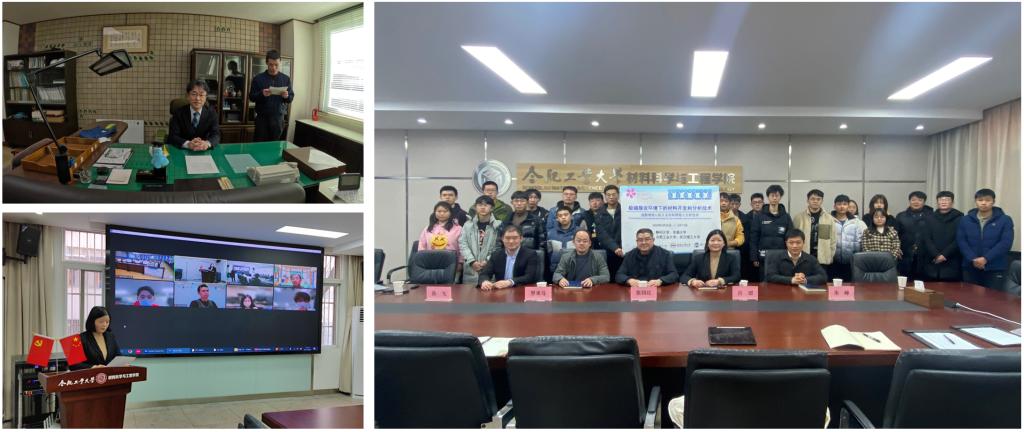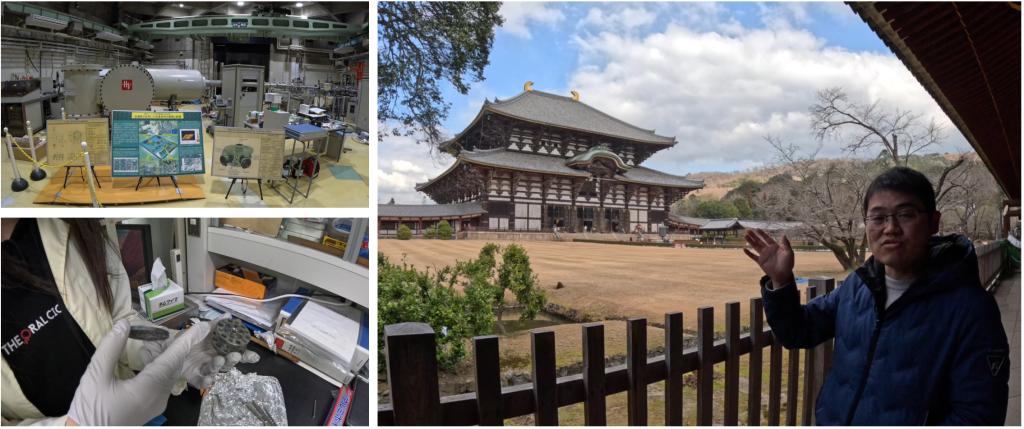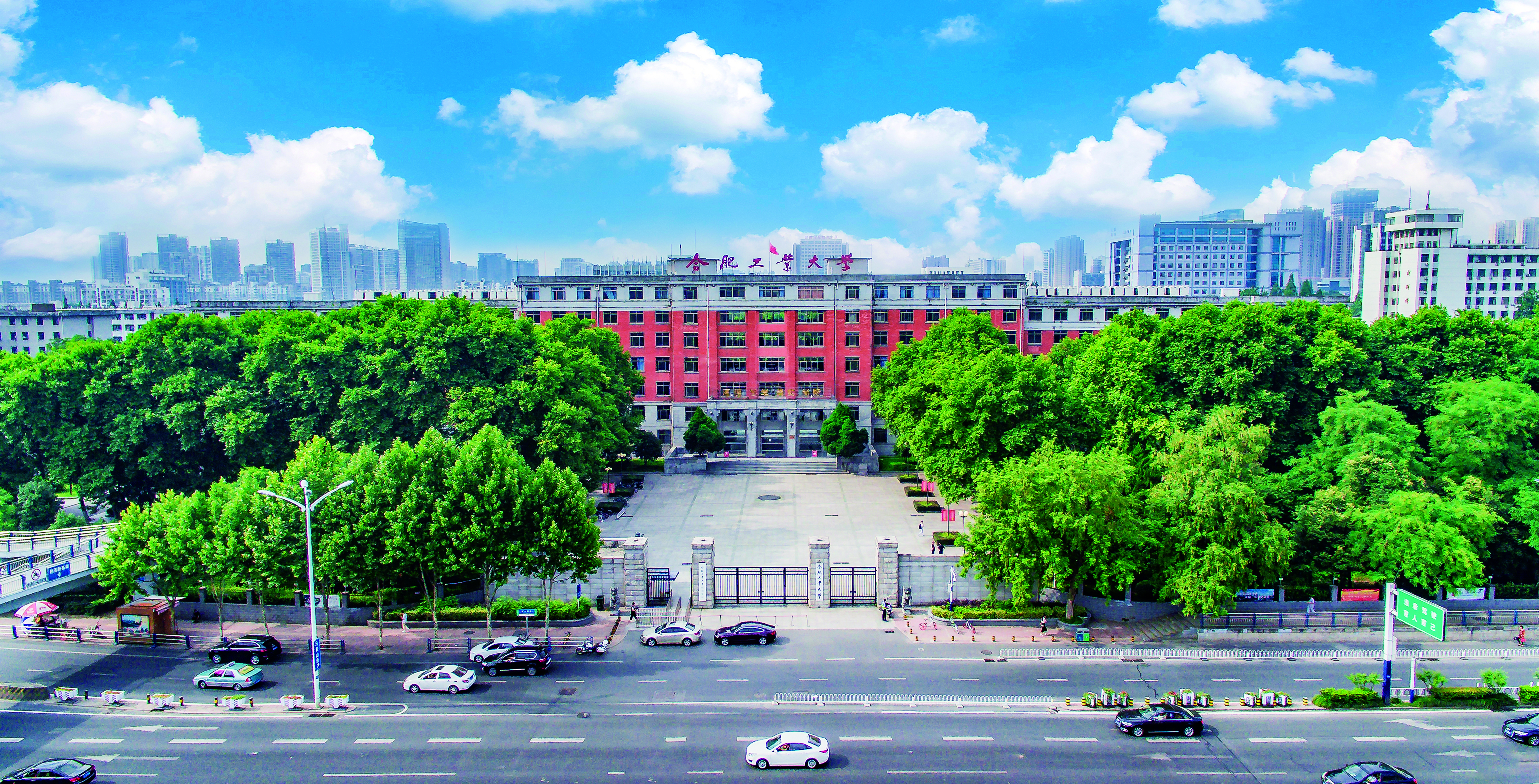In order to promote scientific and technological exchanges and cooperation between our school and Japanese universities,the event was jointly organized by our school, Wuhan University of Technology, Shizuwa University in Japan, and Kyoto University under the support of the Japan Science and Technology Agency (JST) and the Ministry of Science and Technology of China (MOST) from February 20 to March 13, 2023, with the support of JST and MOST. The theme of this event was "Material Development and Analysis Technology in Extreme Service Environments", focusing on the challenges faced by future fusion reactor construction. The event consisted of six sessions, including lectures, seminars, and virtual tours.
The opening ceremony on February 20 was attended by Prof. Naoki Tanaka from Shizuwa University, who expressed his congratulations and hoped to strengthen academic cooperation with our school in the field of fusion science. Prof. Lv from the School of Materials Science and Engineering at our school thanked the Japanese side for their careful organization and strong support, expressing the hope that this exchange activity could bring the two sides closer together. Other participants included Professor Zhang Sihong from the School of International Affairs, Professor Luo Laima from the School of Materials Science and Engineering, Professor Zhu Feng from the Party Committee of the School of Materials Science and Engineering, and some students and teachers from our school.
After the opening ceremony, Prof. Yasuhisa Oya from Shizuwa University led everyone through a virtual tour of Shizuwa University via video. Following this, Prof. Oya gave a special lecture on "Surface Analysis Technology and Tritium Measurement", systematically introducing the surface analysis and tritium measurement methods for first wall materials in fusion reactors, discussing the advantages and disadvantages of different methods. After the lecture, our school's students actively asked questions, resulting in a good interaction.
During the event, Prof. Tatsuo Hinoki from Kyoto University and Prof. Kiyohiro Yabuuchi gave special reports on "Carbon Silicon Composite Materials in Nuclear Energy Applications" and "Radiation Damage and Defect Evolution of Metal Materials", introducing the difficulties faced in current nuclear reactor material research and development, and combining these with extreme service environments to propose new ideas for material research and development, demonstrating the latest research progress at Kyoto University, allowing our school's participating students to gain a more comprehensive understanding of various materials research and development and analysis technologies.
After the special lectures, everyone remotely participated in a virtual tour of Shizuwa University's Radiological Science Research Center and Kyoto University's Advanced Energy Research Institute, where Japanese researchers introduced various experimental devices and analytical instruments in detail. Subsequently, Japan led our school's teachers and students to visit famous tourist attractions in Shizuwa City and Kyoto City via video, giving everyone a taste of the local culture.
The final activity was a report and exchange session by graduate students from our school and Wuhan University of Technology. Our school made three excellent academic reports on topics such as radiation damage to divertor components in fusion reactors, research and application of advanced tungsten-based materials, and behavior of hydrogen isotopes. These were followed by sufficient exchanges with Japanese representatives, showcasing the new forces in our school's fusion research field.
This online exchange event concluded on March 13th. Prof. Oya summarized the gains from this exchange activity, indicating that Japan will restart offline academic exchange activities under the "Sakura Science and Technology Plan" in the future, inviting our school's teachers and students to visit Japan for exchanges. Prof. Sun Fei from our school expressed heartfelt thanks to Shizuwa University and Kyoto University for their efforts in this event, hoping that both sides could take this opportunity to vigorously promote academic research and talent training cooperation between them to a new level.
In recent years, our school's advanced nuclear fusion material team has been closely following international frontiers, continuously strengthening international exchanges and cooperation through the "111 Project" Intelligence Base and the Ministry of Science and Technology's International Cooperation Base, further enhancing the international influence of our school's materials discipline in the field of advanced nuclear energy materials. The holding of the Sakura Science and Technology Plan has successfully consolidated the channel for Sino-Japanese academic exchanges, which is of great significance for broadening our school's teachers and students' international horizons and deepening academic exchanges and cooperation with Japanese universities.
Sun Fei/Text Sun Fei/Photography Luo Laima/Review




Editor-in-Chief:Cheng Tingting
